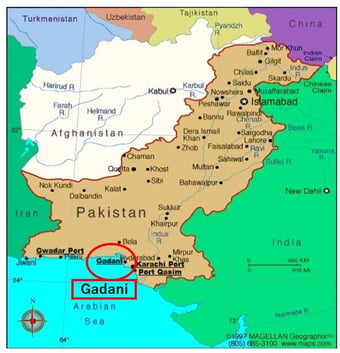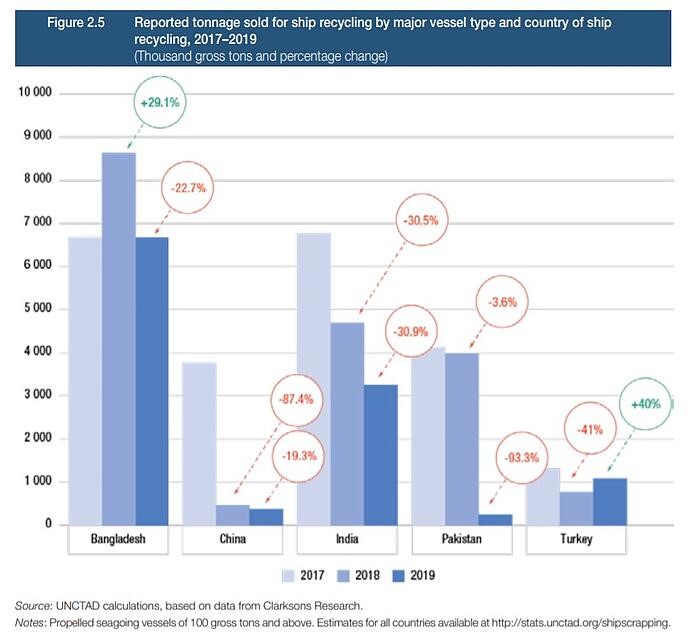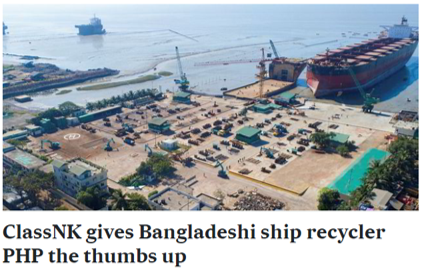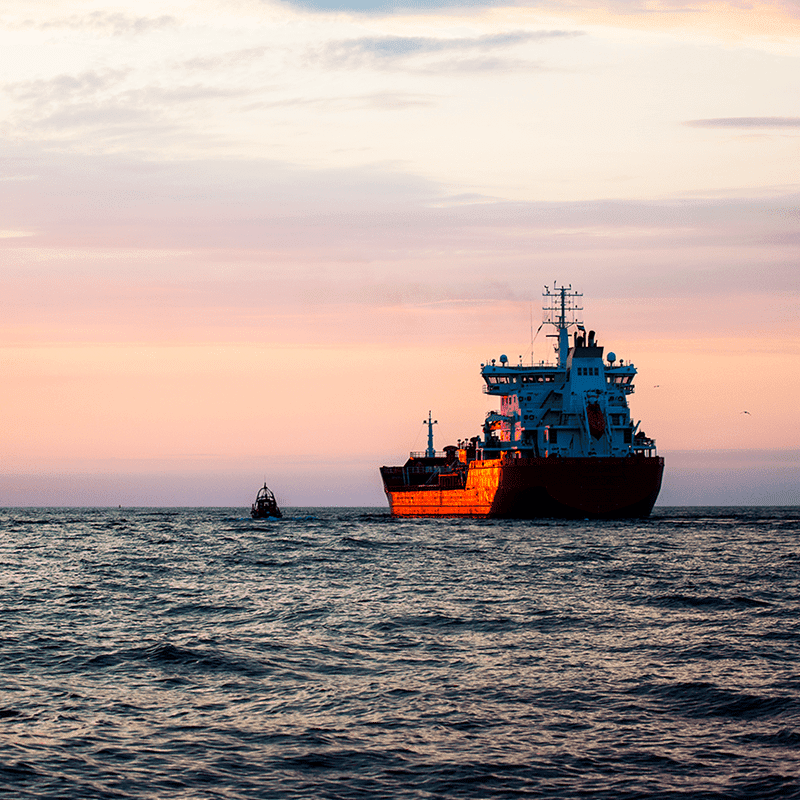- Japanese
-
- A
- A
- A
BLOG
What is the life cycle of large ships? (2)
- Eco Friendly
- General Shipping
2021.11.30
In this blog, we will introduce the current status of the scrapping (dismantling) and recycling (ship recycling) of large ships. In the first part, we will give an overview of ship recycling as they relate to international conventions and regulations and the current status of major ship recycling countries. In the second part of this article, we will introduce other ship scrapping countries, the efforts of overseas shipping companies regarding ship recycling, and the supply and demand forecasts for scrapping yards.
Click here for the first part of this blog.
In the first part about ship recycling, we introduced Bangladesh, India, and Turkey as the major ship scrapping countries. This time, we would like to talk about the situation in Pakistan and China, which have the second largest volume of ship scrapping after these three countries.
Status of major Ship Recycling Countries
(4)Pakistan
Since not much information has been released  about Pakistan's activities toward ratification of the convention, it is not clear whether Pakistan is taking any specific actions or not.
about Pakistan's activities toward ratification of the convention, it is not clear whether Pakistan is taking any specific actions or not.
In 2016, 29 people were killed in a gas cylinder explosion accident in a tanker (most likely due to insufficient oil extraction). This accident has focused worldwide attention on the harsh working conditions in Gadani, but there has been no significant improvement in the situation there.
The volume of ship recycling in 2019 was significantly lower than that in 2017 (see figure below). Unfavourable conditions in taxation and exchange rates are said to be the reason for the situation, but future activities will be closely watched.
Source:https://ews.com.pk/countryprofile/map.php
 Among the major scrapping countries in 2019, Pakistan’s share of ship recycling volume suffered the most significant decrease.
Among the major scrapping countries in 2019, Pakistan’s share of ship recycling volume suffered the most significant decrease.
Trends in ship recycling volume by country from 2017 to 2019.
Source: UNCTAD “Review of maritime transport 2020 ”
Status of major Ship Recycling Countries
(5) China
In the 1990s, China was one of the major ship scrapping countries, and a large number of ships were scrapped there. In the 2000s, the government tightened the laws on scrapping from the environmental aspect and then banned the beaching method of scrapping, which led to the closure of many scrapping yards.
The Chinese government has continued to accelerate their efforts to protect the environment, and since 1st, January 2019, the Chinese government has prohibited the scrapping of foreign-flagged ships. Currently, only Chinese-flagged ships can be scrapped, and the amount of scrapping is decreasing year by year.
In China, the import of steel scrap was also prohibited, but regulations on scrap imports were relaxed in January 2021 to meet the growing demand for resources.
What are efforts in Japan?
Recycling with consideration for the environment and occupational safety is essential for the sustainable development of the entire maritime industry. In Japan, from a relatively early stage Ministry of Land, Infrastructure, Transport and Tourism, The Japanese Shipowners' Association, ClassNK, and other Japanese shipping companies have been cooperating to support the ratification of Regulation of Ship Recycling (Hong Kong International Convention for the Safe and Environmentally Sound Recycling of Ships), particularly as it relates India.
There is also a growing movement to establish a certification system to prove that existing yards are a place where scrapping can be carried out safely. ClassNK dispatches expert inspectors to scrapping yards in India, Turkey, Bangladesh and other countries. Each yard is checked and certified for safety and environmental friendliness.
(Mitsui O.S.K. Lines. has a policy of scrapping ships only at yards certified by ClassNK.)

(Source: TradeWinds Article dated 15 ,January 2020)
What are the efforts of Overseas Shipping Companies?
What are the efforts of major overseas shipping companies with respect to scrapping?
- ① Maersk
Maersk has outlined their "Responsible Ship Recycling Standard (RSRS)" on their website, announcing their definition, background, results of activities and future prospects. They have been actively involved in the ship recycling field from an early stage and select facilities which observe strict international environmental and safety standards and are certified as “ISO 14001” and “OHSMS 18001”. They have been a member of SRTI since its launch and have had their own scrapping policy in place since 2009. Additionally, for the past 10 years they have actively invested in scrapping yards in Alang, India, improving the working environment, and training engineers.
② Hapag-Lloyd
Hapag-Lloyd announced their ship-recycling policy on their website. As a founding member of "SRTI", they are committed to scrap ships in a safe and environmentally friendly manner. Through SRTI, the company aims to raise the quality level of scrapping practices in the entire industry. They comply with EU regulations and have established their own rules, such as limiting the scrapping locations of EU-flagged vessels to yards certified by the company. 43 certified yards are currently recorded on European List of ship recycling facilities, including those outside of Europe in countries such as the United States and Turkey (from European Commission website). - ③ Teekay
Teekay display their ship-recycling policy on their website. They have scrapped 4 LNG carriers in India since 2017. As a condition for the scrapping yard, they point out that it must comply with the Regulation of Ship Recycling. During the 6 -8 month scrapping period for each vessel, Teekay employees regularly visit the yards to monitor and inspect HSEQ (Health, Safety, Environment & Quality) performance. The company is the eighth SRTI member. They are moving forward with efforts to establish new standards that clarify ship recycling responsibilities beyond the convention standards.
European shipping companies, such as those mentioned above, have indicated that they do not scrap vessels in Bangladesh at this time because they have not yet met the European standards.
The Importance of Ship Recycling for the Circular Economy
Ships contain high quality iron which is recyclable to around 90%. Steel produced by melting and smelting the steel scrap from ship scrapping in electric furnaces can reduce CO2 emissions, and there is an increasing demand for scrapping worldwide in the drive towards decarbonization.
From the perspective of the circular economy, there will be an increasing demand for the efficient use of resources, which includes ships scrapped in a safer and less environmentally harmful manner. Mitsui. O.S.K. Lines, as a shipping company, will continue to approach the ship recycling business from the perspective of "Responsible Consumption and Production".
Recommended Articles
2022.07.05
- General Shipping
2021.04.13
- Energy
2021.08.07
- Eco Friendly
2021.06.07
- Energy
- Eco Friendly
2021.11.16
- Eco Friendly
Latest Articles
2024.04.22
- Energy
- General Shipping
2024.04.02
- Energy
- General Shipping
2024.03.19
- Energy
- General Shipping



.png)










